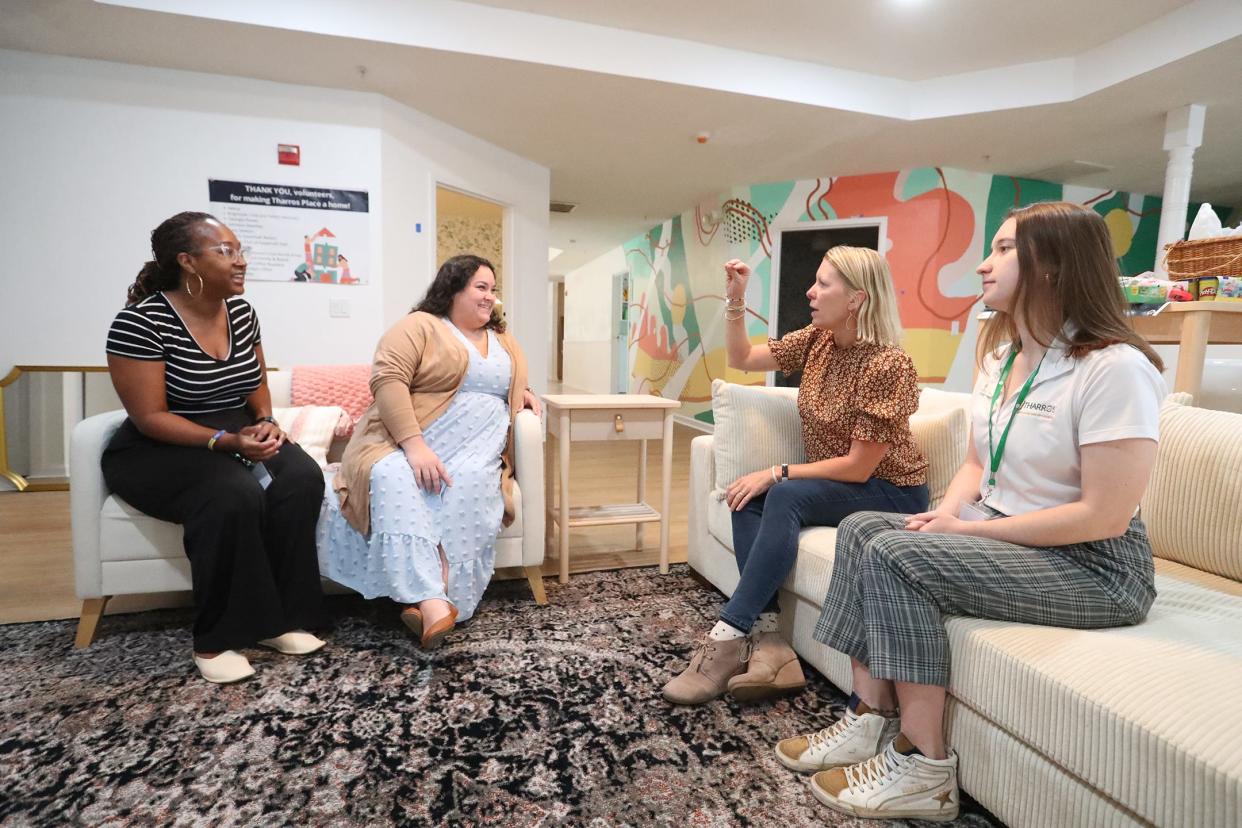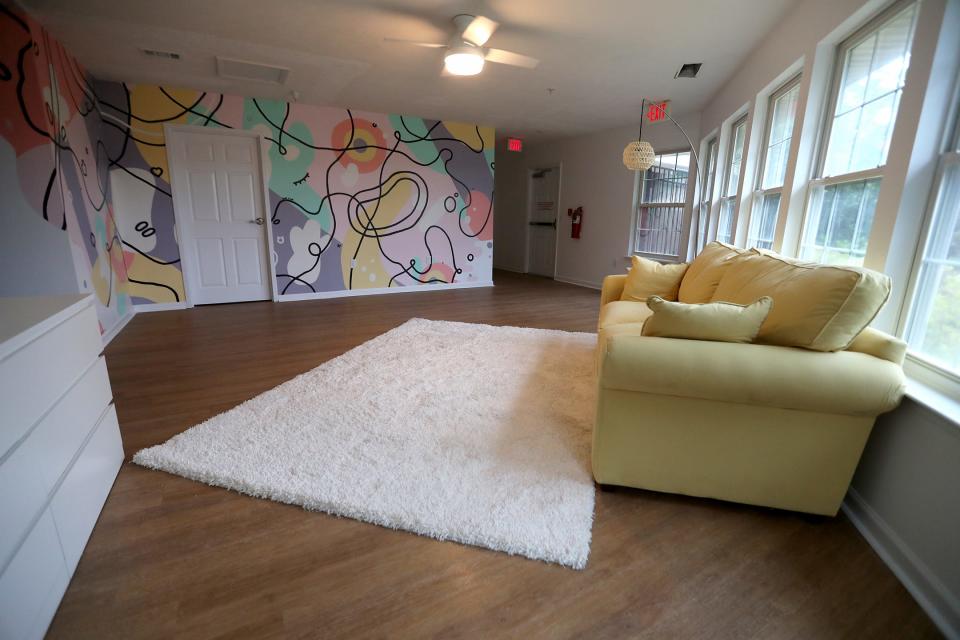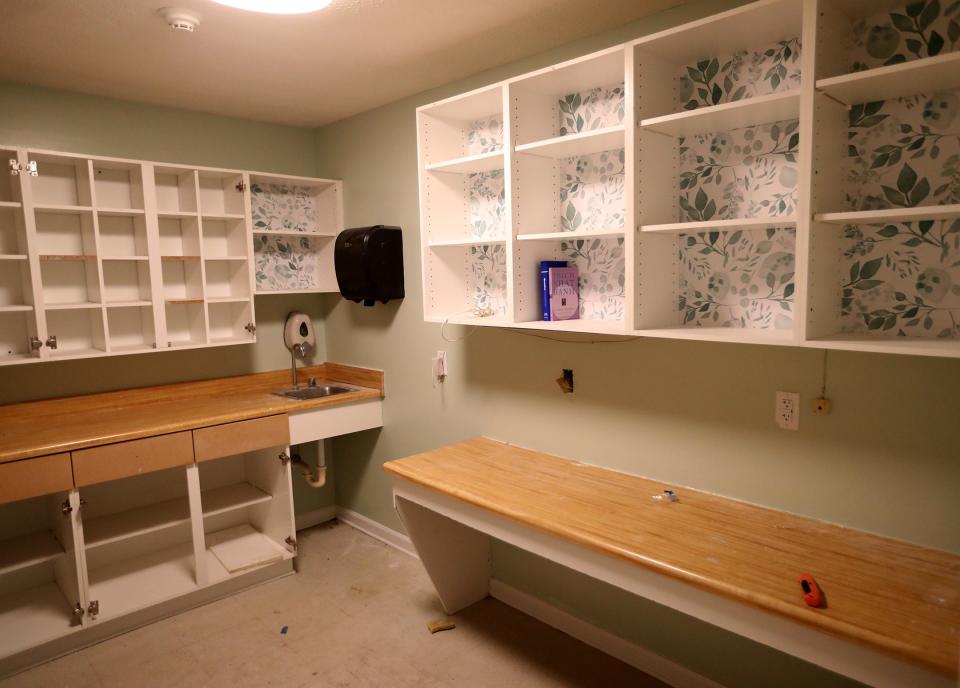Tharros Place set to open residential facility for teen survivors of human trafficking

Tharros Place is getting closer to opening its residential facility for girls, ages 12 to 17, who are survivors of human trafficking. Next week, the first residents will start moving into the local nonprofit's facility in western Chatham County.
Compared to communities of similar size and population, Savannah has a high rate of adolescent girls targeted for trafficking, largely because of the ports, the I-95 corridor and the tourism industry as well as its relatively close proximity to major sex trafficking hubs, such as Miami, Atlanta and Tampa.
“Chatham County is fourth in the state for reported cases of minors who have been sex trafficked and the closest facility is 90 minutes away,” said Tharros Place Executive Director Julie Wade. “So, we know it’s happening to our girls who live in Chatham County. And there’s no resource for them. This will give our community a place of recovery. And I think in a year’s time, it can change outcomes.”
More: Attorney Julie Wade to launch Tharros Place to aid young victims of human trafficking
More: Lawyer who prosecuted first federal human trafficking case in Georgia to speak at free event

How is Tharros Place serving survivors of trafficking?
With 420 financial donors, Tharros Place raised about $1.12 million as of early October, said Wade.
Using some of that funding, Wade bought the space for the facility at the end of March, in addition to hiring staff and saving money for future expenses.
In spring of this year, a Savannah College of Art and Design (SCAD) SERVES class designed the interior of the facility, including a mural in the living room, which was painted by a SCAD alumnus. Ikea and Wayfair donated furniture, including couches, tables and desks, to the facility.
Tharros Place will have 12 beds for 12 girls, and six bathrooms.
“We think we can fill it with 12 immediately, but we want to make sure, we just want to go slowly,” Wade said in a 30-minute interview at the facility.

All staff members are undergoing 40 hours of training in the areas of trauma-informed care, de-escalation and human trafficking. “It’s about developing trust and relationships, and making everyone feel safe. One-by-one, trying to make them open to change. We want them to have a normal childhood. A lot of these kids haven’t been able to feel like kids. We want them to feel like normal teenagers as much as possible.”
The adolescent girls will attend school at the facility through the Georgia Cyber Academy, but Tharros Place also employs a full-time certified teacher on-staff.
“They’ll come in at various levels. We might have some taking advanced calculus, and some on a third-grade math level,” said Wade, adding that each girl will have her own education plan. “We really want to connect it to: What do you want to be when you grow up?”
While Tharros Place prepares to open the facility, Wade said the youth remain in a “facility far away from home; they’re in foster families where they don’t know how to work with young people, or they’re home, where it isn’t working out if this is happening. They’re basically in unsafe places.”
Wade is grateful to be at this stage in Tharros Place's development. “This is hard work, we’re all figuring it out."
Drew Favakeh is the public safety and courts reporter for Savannah Morning News. You can reach him at AFavakeh@savannahnow.com.
This article originally appeared on Savannah Morning News: Tharros Place opens facility for teen survivors of human trafficking

